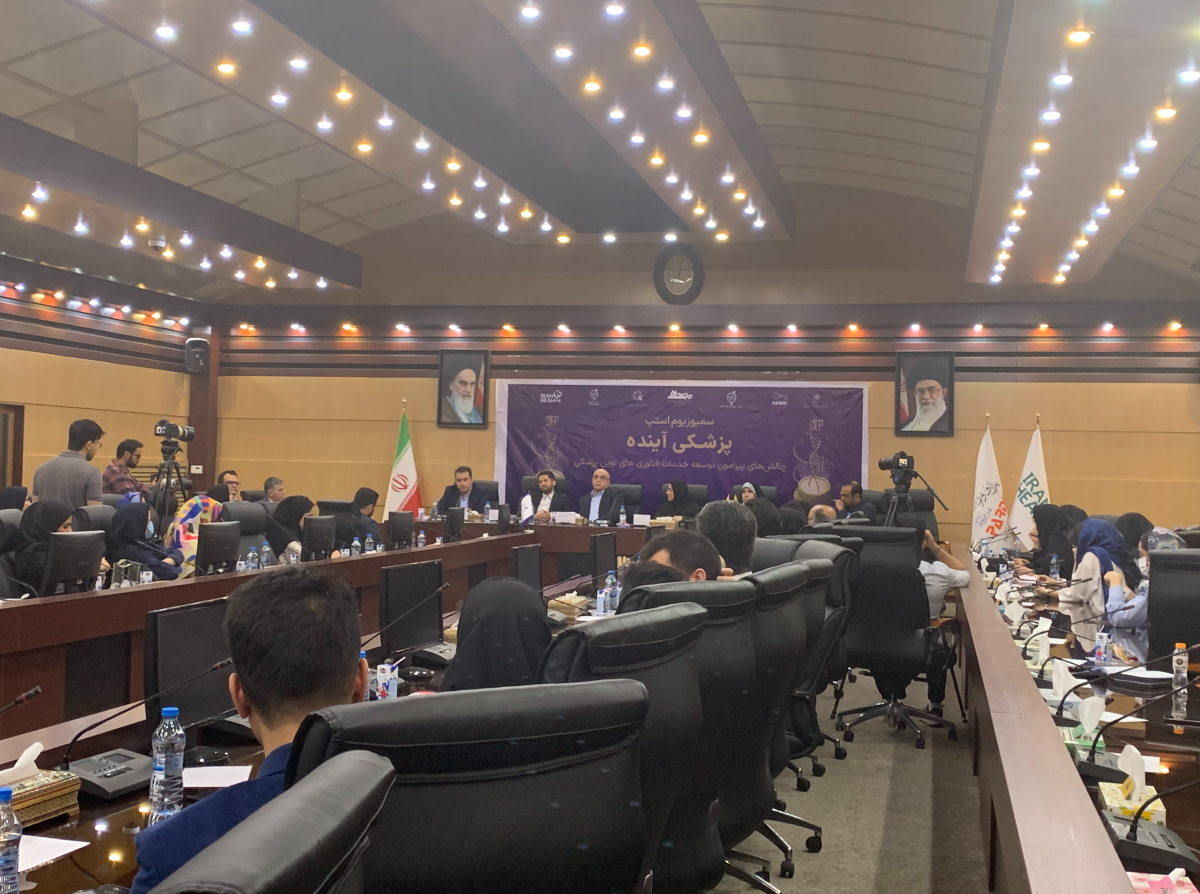Experts attend STEP Symposium on Future Medicine


In the Science and Technology Exchange Program (STEP) Symposium held on May 18, six experts exchanged views on challenges in development of new medical technology services.
MSTF Media reports:
STEP Symposium was moderated by Nasser Aghdami, faculty member at Royan Institute.
Ehsan Arefian, the Symposium’s secretary who is also the secretary of Council for Development of Regenerative Medicine and Stem Cell Technologies, was the first speaker.
He was primarily asked about the role of implementing policies. “Regarding some diseases, we’ve had impressive progress in the last few decades, but we need to address cancer, genetic disorders and aging-related diseases in the future medicine,” Arefian said.
He further discussed the vital role of attracting investors to the realm of regenerative medicine.
Abbas Hajifathali, faculty member at Shahid Beheshti University of Medical Sciences, discussed “demands of physicians and patients”. He specifically targeted different cancers and how the families are negatively affected by such diseases.
He believed that “cell therapy is of high significance, which works better than immunosuppressants (immunosuppressive drugs).”
Hajifathali also highlighted the inefficacy of knowledge for knowledge research projects in the current situation of Iran where more practical projects are demanded.
Mohamad Khademi, head of Technology Studies Institute, gave a talk about “the future of jobs in future medicine”.
He targeted the phenomenon of inversion in job market. “Those who are trained at universities cannot easily find jobs these days. Surprisingly, in the sphere of health we do not have sufficient qualified skilled workforce in Iran,” he noted.
Khademi accentuated that “Soft skills need to be emphasized in our curriculums.”
Zahra Ghalanbor, CEO at CellTech Pharmed, presented her views on “challenges in ATMPs marketing”.
“In cell therapy right now, we cannot assure the investors about the outcomes,” she contended.
According to Ghalanbor, “contrary to biotechnology, in cell therapy we cannot depend on imports.”
Matalahi Ardakani, secretary of Council for Development of Biotechnology, delivered a speech about “ATMPs in precision medicine”.
He said we first need to set our targets in order to be able to go further. He talked about the onset of personalized medicine in early 2000s, which included “an efficient treatment for a special genome.”
“A thorough description of pathology of the patient is also of high importance in personalized medicine. Diagnosis of a disease and how we can change the path of diagnosing a patient’s illness based on their history is also important,” he maintained, adding “We are moving from personalized medicine to precision medicine and precision health.”
He emphasized that “The patient’s lifestyle and also their cooperation are crucial in P4 medicine” which denotes personalized, predictive, preventive, participatory medicine.
Marzieh Ebrahimi, CEO at Kian Immune Cell, talked about “the expectations of private sector from regulatory body”.
As she commented, immune cell therapy cannot evolve without the support of the government. She said she worked on cell therapy at Royan Institute which provided a fertile ground for her research. Later, she founded a company in order to direct her research towards practical projects.
As Ebrahimi put it, “when it comes to cell therapy, students are perfectly trained and other sectors have a good function on their own; however, links and cooperation among them is lacking.”
She further talked about the need for a think tank to accelerate the process.
At the end of the symposium, participants including startup owners in the realm of health and scholars asked their questions from the speakers.